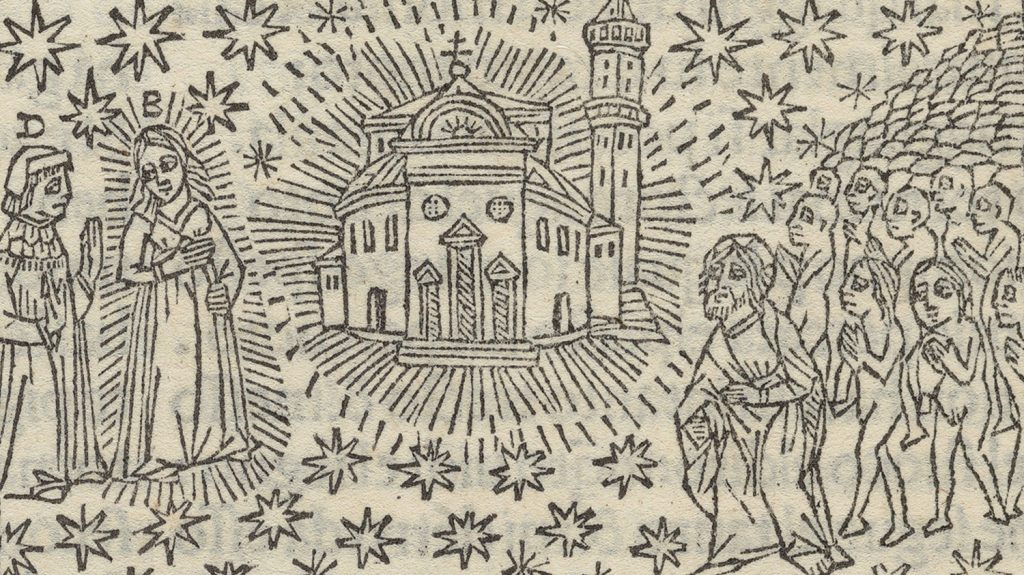Beatrice Portinari, the muse of the poet Dante, whom he was said to have loved his whole life, died today in Florence in 1290. In Dante’s Divine Comedy, where the Roman poet Virgil had been Dante’s guide through the Inferno and Purgatorio, Beatrice took over to guide him through the Paradiso (as seen above), unfolding his final vision of God.
Today in the year 793, Vikings raided the island of Lindisfarne, which was an important centre of Celtic Christianity. The monks of the island’s monastery were either killed or drowned, or taken off in chains into slavery, and the treasures of the church, which included gold, silver, and precious manuscripts, were carried off by the Vikings. The calamity caused a great deal of soul searching among Celtic Christians, who had to come to terms with God allowing such an important centre of pilgrimage and learning being destroyed by pagan invaders.
‘The distress of your suffering fills me daily with deep grief, when heathens desecrated God’s sanctuaries, and poured the blood of saints within the compass of the altar, destroyed the house of our hope, trampled the bodies of saints in God’s temple like animal dung in the street.’ Alcuin, writing to Higbald, Bishop of Lindisfarne
Today in the year 632, according to tradition, the Prophet Muhammad died in Medina at the age of 62 or 63. It is said that he was buried directly beneath the bed in which he died, in the house of his wife Aisha. A domed tomb was first raised over the grave in the 13th century, and is often visited by devoted Muslims as part of the annual Hajj.
Gustavo Gutiérrez, the Peruvian priest, theologian and father of liberation theology, was born today in 1928. Gutiérrez set the agenda for liberation theology, which took the side of the poor and oppressed, and established grass roots church communities which studied the Bible, shared the eucharist and worked for progressive social change.
‘Is the Church fulfilling a purely religious role when by its silence or friendly relationships it lends legitimacy to dictatorial and oppressive government?’ Gustavo Gutiérrez, A Theology of Liberation
William of York was murdered today in 1154. He had been elected Archbishop of York 11 years earlier, but had such trouble hanging onto his job that he became an ex-Archbishop before finally getting York back again in 1153. Just six months later, someone slipped poison into the Archbishop‘s chalice at Mass, which killed William, and one of his archdeacons was accused of murder.
Image: Houghton Library
